This Is Incredible!
This is incredible!
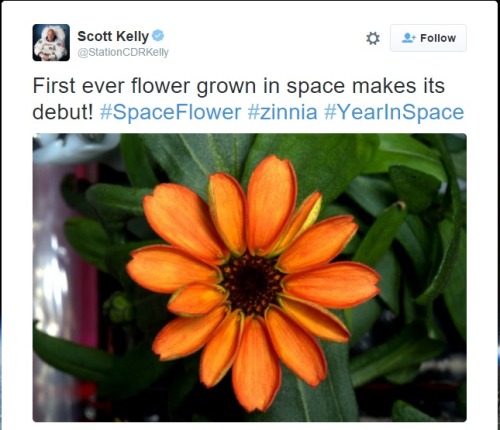
More Posts from Alitheastronomer and Others

NGC 1398 in Fornax.
Source: https://imgur.com/7dzEl2s

The Space Shuttle Columbia
Pause today to remember the Crew of STS-107, who all died on this day 13 years ago, February 1, 2003, when the Space Shuttle Columbia became unstable and disintegrated on re-entry over Texas. The Crew:
The Flight Commander was Rick D. Husband, a U.S. Air Force colonel and mechanical engineer, who piloted a previous shuttle during the first docking with the International Space Station on STS-96.
The Pilot was William C. McCool, a 1983 graduate of the United States Naval Academy in Annapolis, Maryland and U.S. Navy commander.
The Payload Commander was Michael P. Anderson, a U.S. Air Force lieutenant colonel. He was also a physicist and mission specialist who was in charge of the science mission.
The Payload Specialist Ilan Ramon was a colonel in the Israeli Air Force and the first Israeli astronaut.
The Mission Specialist was Kalpana Chawla, an Indian-born aerospace engineer who was on her second space mission. She was the first Indian woman in space.
The Mission Specialist was David M. Brown, a U.S. Navy captain trained as an aviator and flight surgeon.
The Mission Specialist was Laurel Blair Salton Clark, a U.S. Navy captain and flight surgeon. Clark worked on biological experiments.
The Space Shuttle Columbia was named after the poetic designation for the United States of America. This poetic name (based on Christopher Columbus, thought then as the sole discoverer of America) was meant to be both inclusive and a little bit nostalgic, in the sense that America could be embodied in a name. Clearly these seven astronauts and mission specialists embodied the best spirit of America, the inclusion of an Indian and Israeli the strongest symbol yet of what America can accomplish when unified to a common purpose. Special thought to William McCool, graduate of the USNA-I pass almost daily the ‘McCool Marker’, a memorial on the grounds of the USNA golf course to celebrate his achievements both as a Naval Aviator but also his accomplishments as a Midshipman, where he served as Captian of the Cross Country team his senior year. The marker is placed on the cross country course 16 minutes from the finish line of his fastest run on the Navy course.
Milky Way timelapse taken this morning (06/03/2016) on Osea island. Taken between 4:50 am and 6:10 am, panning is achieved by using my SkyTracker in horizontal mode. 6D Samyang 24mm @f2.8 ISO4000 25 sec exposures.. Please watch in HD!!
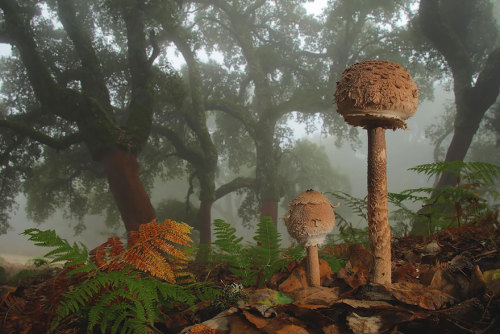
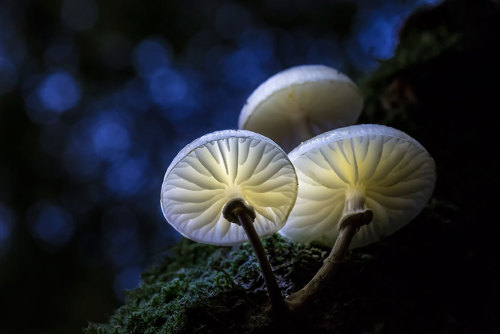
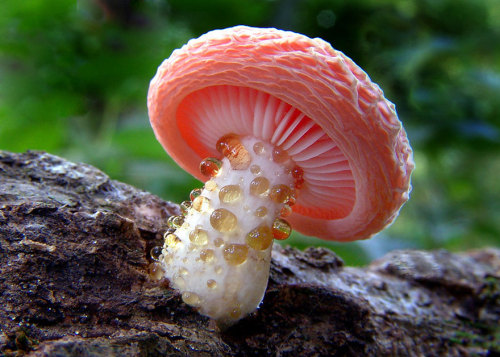
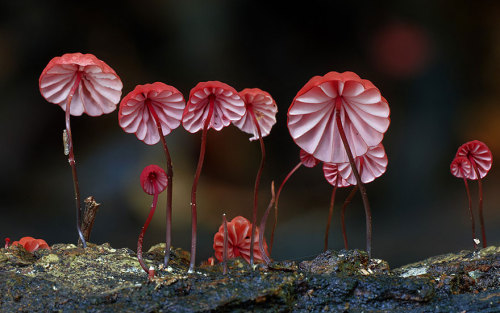
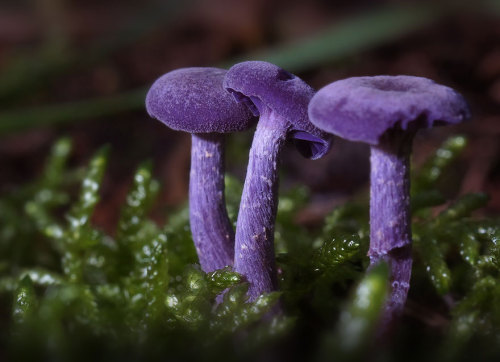
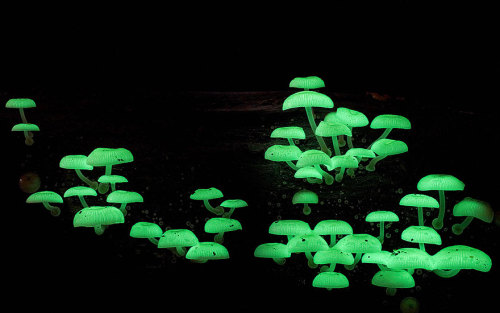
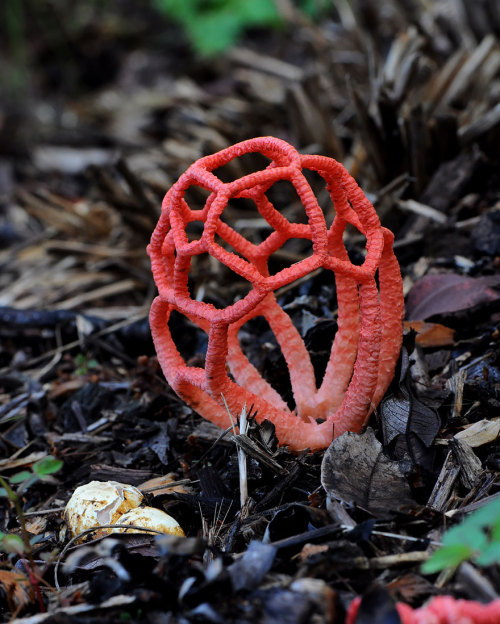
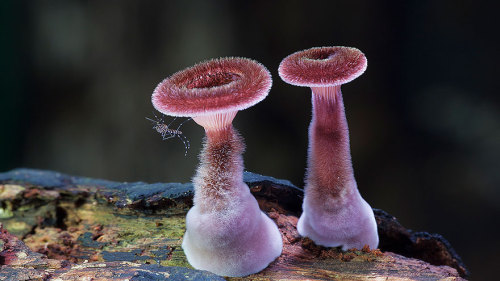
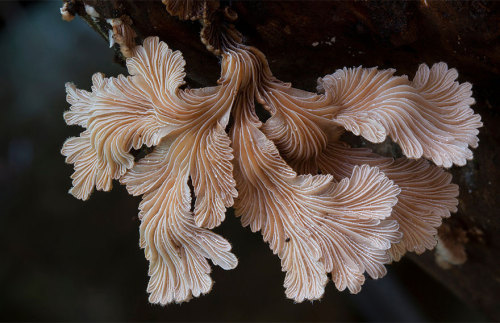
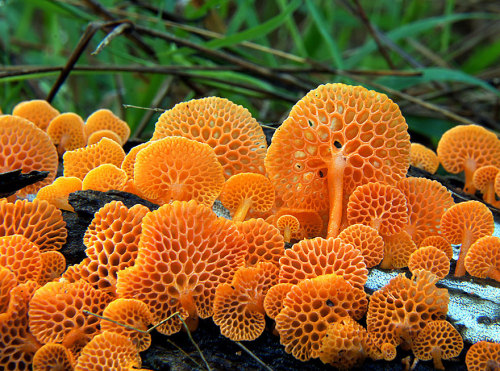
The Mystical World Of Mushrooms Captured In Photos
Most people consider mushrooms to be the small, ugly cousins of the plant kingdom, but theirs is surprisingly beautiful and wonderful world waiting to be explored. These beautiful mushrooms, captured by enthusiastic nature photographers, are a far cry from the ones you find in the woods or your local grocery store.
Most mushrooms, as we know them, are actually just the reproductive structure of the fungus they belong to – their fungal networks expand far further underground, and some fungi don’t even sprout the sort of mushrooms that we’re used to seeing. In fact, depending on your definition of “organism,” the largest living organism in the world is a fungus – there’s a honey mushroom colony in Oregon that occupies about 2,000 acres of land! ( Bored Panda )

Favourite APOD of 2015, #10 (October): A Gegenschein Lunar Eclipse
There’s so much going on in this photo! The Gegenschein is the faint, blueish glow you can see rising from the horizon and going behind the eclipsed Moon.
Runner-ups:

The Witch Head Nebula

Starburst Galaxy Messier 94
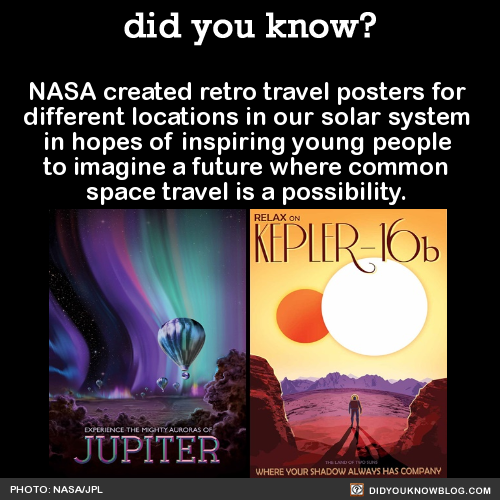
NASA created retro travel posters for different locations in our solar system in hopes of inspiring young people to imagine a future where common space travel is a possibility.
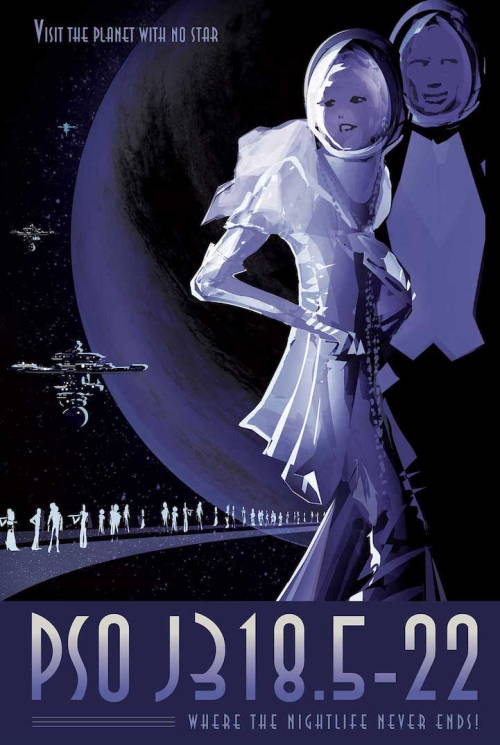
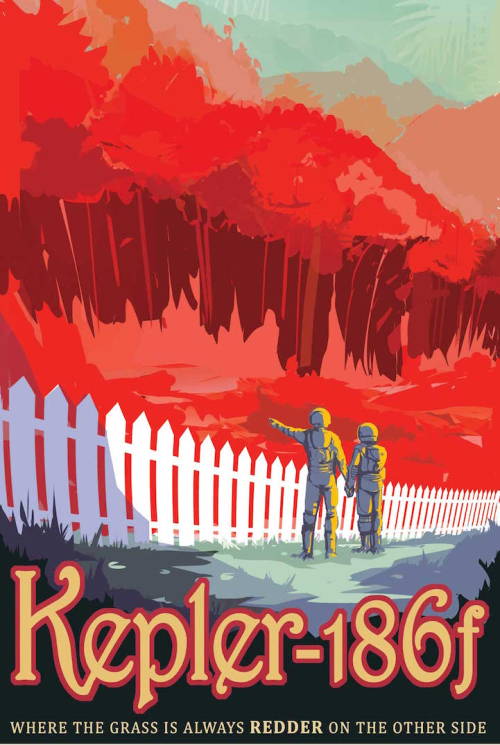
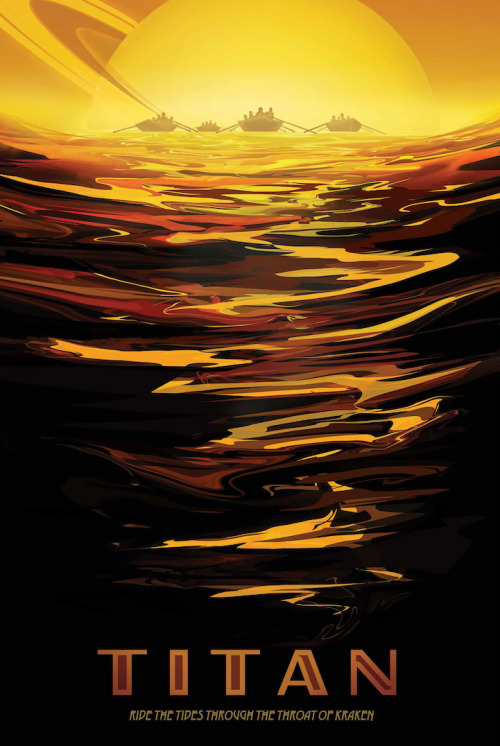
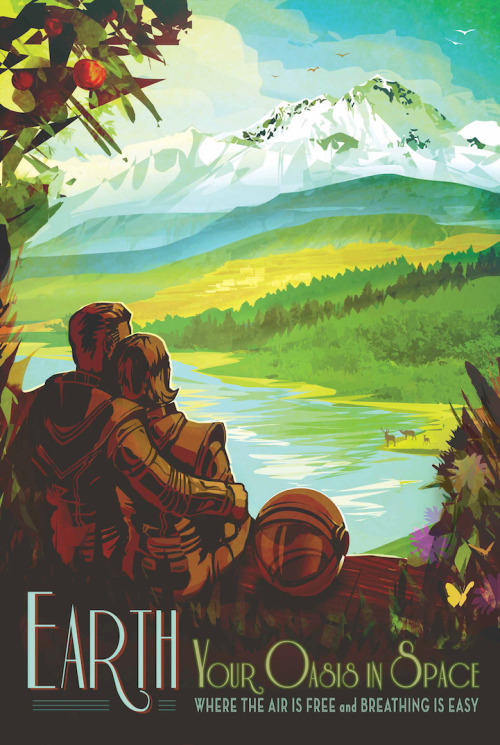
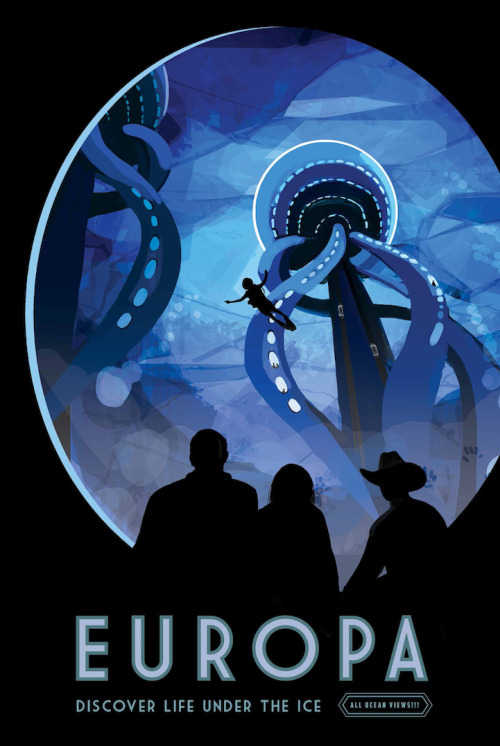
Source
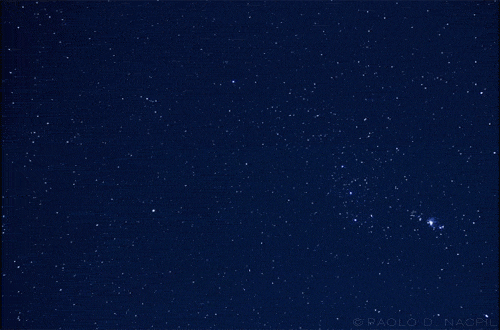
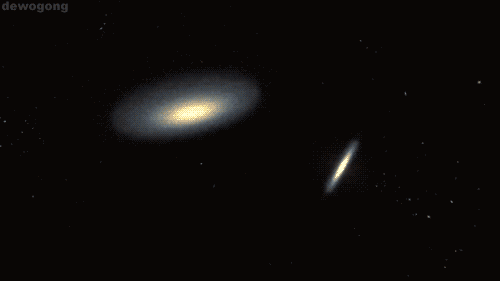
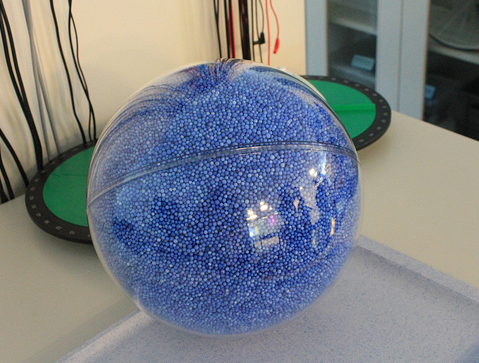
This is a model of how many Earth’s can fit inside the sun.

Hubble Sees a Galactic Sunflower : The arrangement of the spiral arms in the galaxy Messier 63, seen here in an image from the NASA/ESA Hubble Space Telescope, recall the pattern at the center of a sunflower.
js
-
 mastertrainiet reblogged this · 3 weeks ago
mastertrainiet reblogged this · 3 weeks ago -
 ozmaba reblogged this · 3 weeks ago
ozmaba reblogged this · 3 weeks ago -
 ozmaba liked this · 3 weeks ago
ozmaba liked this · 3 weeks ago -
 gigilberry liked this · 3 weeks ago
gigilberry liked this · 3 weeks ago -
 everythingf2x liked this · 3 weeks ago
everythingf2x liked this · 3 weeks ago -
 marsbarsnotthecandybars liked this · 3 weeks ago
marsbarsnotthecandybars liked this · 3 weeks ago -
 turnips-creates reblogged this · 3 weeks ago
turnips-creates reblogged this · 3 weeks ago -
 little-lovely-things reblogged this · 3 weeks ago
little-lovely-things reblogged this · 3 weeks ago -
 seikumo liked this · 3 weeks ago
seikumo liked this · 3 weeks ago -
 tschieffer reblogged this · 3 weeks ago
tschieffer reblogged this · 3 weeks ago -
 tschieffer liked this · 3 weeks ago
tschieffer liked this · 3 weeks ago -
 teieheyeh reblogged this · 3 weeks ago
teieheyeh reblogged this · 3 weeks ago -
 mastertrainiet liked this · 3 weeks ago
mastertrainiet liked this · 3 weeks ago -
 pheonixqueen reblogged this · 3 weeks ago
pheonixqueen reblogged this · 3 weeks ago -
 pheonixqueen liked this · 3 weeks ago
pheonixqueen liked this · 3 weeks ago -
 aceofdivinechlorophyll reblogged this · 3 weeks ago
aceofdivinechlorophyll reblogged this · 3 weeks ago -
 aceofdivinechlorophyll liked this · 3 weeks ago
aceofdivinechlorophyll liked this · 3 weeks ago -
 boxell reblogged this · 3 weeks ago
boxell reblogged this · 3 weeks ago -
 boxell liked this · 3 weeks ago
boxell liked this · 3 weeks ago -
 skullypirate liked this · 3 weeks ago
skullypirate liked this · 3 weeks ago -
 skullypirate reblogged this · 3 weeks ago
skullypirate reblogged this · 3 weeks ago -
 balsa-margarita reblogged this · 3 weeks ago
balsa-margarita reblogged this · 3 weeks ago -
 aishwrites reblogged this · 3 weeks ago
aishwrites reblogged this · 3 weeks ago -
 aishwrites liked this · 3 weeks ago
aishwrites liked this · 3 weeks ago -
 lowlife-in-high-orbit reblogged this · 3 weeks ago
lowlife-in-high-orbit reblogged this · 3 weeks ago -
 lowlife-in-high-orbit liked this · 3 weeks ago
lowlife-in-high-orbit liked this · 3 weeks ago -
 nekrops-shaped liked this · 3 weeks ago
nekrops-shaped liked this · 3 weeks ago -
 mellifluas liked this · 3 weeks ago
mellifluas liked this · 3 weeks ago -
 jinglebellrockstars reblogged this · 3 weeks ago
jinglebellrockstars reblogged this · 3 weeks ago -
 saphoblin reblogged this · 3 weeks ago
saphoblin reblogged this · 3 weeks ago -
 saphoblin liked this · 3 weeks ago
saphoblin liked this · 3 weeks ago -
 writingamongther0ses reblogged this · 3 weeks ago
writingamongther0ses reblogged this · 3 weeks ago -
 toribookworm22 reblogged this · 3 weeks ago
toribookworm22 reblogged this · 3 weeks ago -
 theastroknights liked this · 1 month ago
theastroknights liked this · 1 month ago -
 found-remedy liked this · 1 month ago
found-remedy liked this · 1 month ago -
 sseanettles reblogged this · 1 month ago
sseanettles reblogged this · 1 month ago -
 sillybearextraordinaire reblogged this · 2 months ago
sillybearextraordinaire reblogged this · 2 months ago -
 jamalexlee reblogged this · 2 months ago
jamalexlee reblogged this · 2 months ago -
 rebel13lion39 reblogged this · 2 months ago
rebel13lion39 reblogged this · 2 months ago -
 r-tposingsunface reblogged this · 2 months ago
r-tposingsunface reblogged this · 2 months ago -
 r-tposingsunface liked this · 2 months ago
r-tposingsunface liked this · 2 months ago -
 ageblue-aka-varnah-g reblogged this · 2 months ago
ageblue-aka-varnah-g reblogged this · 2 months ago -
 sleepydreameroncloud9 reblogged this · 2 months ago
sleepydreameroncloud9 reblogged this · 2 months ago -
 zarinaa113 reblogged this · 2 months ago
zarinaa113 reblogged this · 2 months ago -
 aylwyyn228 reblogged this · 2 months ago
aylwyyn228 reblogged this · 2 months ago -
 aylwyyn228 liked this · 2 months ago
aylwyyn228 liked this · 2 months ago -
 momohasagun reblogged this · 2 months ago
momohasagun reblogged this · 2 months ago -
 momohasagun liked this · 2 months ago
momohasagun liked this · 2 months ago